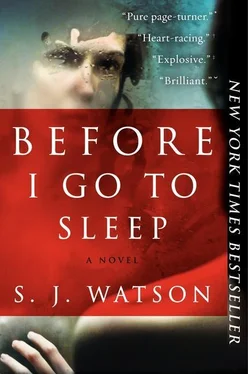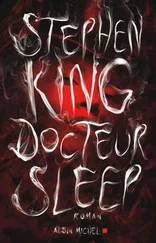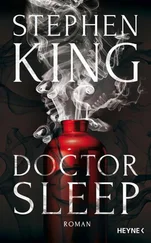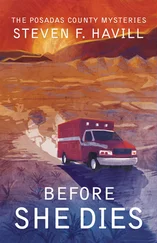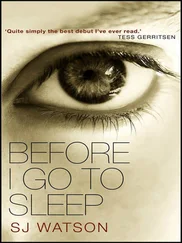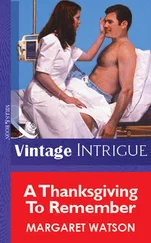I thought of the fly on the windshield on the way home from my grandmother’s house.
He spoke again. “Christine, love. I’m so sorry.”
I felt angry. Angry with him. Bastard, I thought, even though I knew it wasn’t his fault.
I forced myself to speak. “How?”
He sighed. “Adam was in the army.”
I went numb. Everything receded, until I was left with pain, and nothing else. Pain. Reduced to a single point.
A son I did not even know that I had, and he had become a soldier. A thought ran through me. Absurd. What will my mother think?
Ben spoke again, in staccato bursts. “He was a Royal Marine. He was stationed in Afghanistan. He was killed. Last year.”
I swallowed. My throat, dry.
“Why?” I said, and then, “How?”
“Christine—”
“I want to know,” I said. “I need to know.”
He reached across to take my hand, and I let him, though I was relieved when he moved no closer on the sofa.
“You don’t want to know everything, surely?”
My anger surged. I couldn’t help it. Anger and panic. “He was my son!”
He looked away, toward the window.
“He was traveling in an armored vehicle,” he said. He spoke slowly, almost whispering. “They were escorting troops. There was a bomb, on the roadside. One soldier survived. Adam and one other didn’t.”
I closed my eyes, and my voice dropped to a whisper, too. “Did he die straight away? Did he suffer?”
Ben sighed. “No,” he said, after a moment. “He didn’t suffer. They think it would have been very quick.”
I looked across to where he sat. He did not look at me.
You’re lying, I thought.
I saw Adam, bleeding to death by a roadside, and pushed the thought out, focusing instead on nothing, on blankness.
My mind began to spin. Questions. Questions that I dared not ask in case the answers killed me. What was he like as a boy, a teenager, a man? Were we close? Did we argue? Was he happy? Was I a good mother?
And, How did the little boy who had ridden a plastic tricycle end up being killed on the other side of the world?
“What was he doing in Afghanistan?” I said. “Why there?”
Ben told me we were at war. A war against terror, he said, though I don’t know what that means. He said there was an attack, an awful attack, in America. Thousands were killed.
“And now my boy ends up dead in Afghanistan?” I said. “I don’t understand…”
“It’s complicated,” he said. “He always wanted to join the army. He thought he was doing his duty.”
“His duty? Did you think that was what he was doing? His duty? Did I? Why didn’t you persuade him to do something else? Anything?”
“Christine, it was what he wanted.”
For an awful moment, I almost laughed. “To get himself killed? Is that what he wanted? Why? I never even knew him.”
Ben was silent. He squeezed my hand, and a single tear rolled down my face, hot as acid, and then another, and then more. I wiped them away, frightened that to start to cry would be never to stop.
I felt my mind begin to close down, to empty itself, to retreat into nothingness. “I never even knew him,” I said.
Later, Ben brought down a box and put it on the coffee table in front of us.
“I keep these upstairs,” he said. “For safety.”
From what? I thought. The box was gray, made of metal. The kind of box in which one might keep money or important documents.
Whatever it contained must be dangerous. I imagined wild animals, scorpions and snakes, hungry rats, venomous toads. Or an invisible virus, something radioactive.
“For safety?” I said.
He sighed. “There are some things it wouldn’t be good for you to stumble on when you’re by yourself. Some things that it’s better if I explain to you.”
He sat next to me and opened the box. I could see nothing inside but paper.
“This is Adam as a baby,” he said, taking out a handful of photographs and handing one to me.
It was a picture of me, on a street. I am walking toward the camera, with a baby—Adam—strapped to my chest in a pouch. His body is facing mine, but he is looking over his shoulder at whoever is taking the picture, the smile on his face a toothless approximation of my own.
“You took this?”
Ben nodded. I looked at it again. It was torn, its edges stained, the colors fading as if it were slowly bleaching to white.
Me. A baby. It did not seem real. I tried to tell myself I was a mother.
“When?” I said.
Ben looked over my shoulder. “He would have been about six months old, then,” he said. “So, let’s see. That must be about 1987.”
I would have been twenty-seven. A lifetime ago.
My son’s lifetime.
“When was he born?”
He dug his hand into the box again, passed me a slip of paper. “January,” he said. It was yellow, brittle. A birth certificate. I read it in silence. His name was there. Adam.
“Adam Wheeler,” I said, out loud. To myself as much as to Ben.
“Wheeler is my last name,” he said. “We decided he should have my name.”
“Of course,” I said. I brought the paper up to my face. It felt too light to be a vessel for so much meaning. I wanted to breathe it in, for it to become part of me.
“Here,” said Ben. He took the paper from me and folded it. “There are more pictures,” he said. “Do you want to see them?”
He handed me a few more photographs.
“We don’t have that many,” he said, as I looked at them. “A lot were lost.”
He made it sound as if they had been left on trains or given to strangers for safekeeping.
“Yes,” I said. “I remember. We had a fire.” I said it without thinking.
He looked at me oddly, his eyes narrowed, pinched tight.
“You remember?” he said.
Suddenly I wasn’t sure. Had he told me about the fire this morning or was I remembering him telling me the other day? Or was it just that I had read it in my journal after breakfast?
“Well, you told me about it.”
“I did?” he said.
“Yes.”
“When?”
When was it? Had it been that morning, or days ago? I thought of my journal, remembered reading it after he’d gone to work. He’d told me about the fire as we sat on Parliament Hill.
I could have told him about my journal then, but something held me back. He seemed less than happy that I had remembered something. “Before you left for work?” I said. “When we looked through the scrapbook. You must have, I suppose.”
He frowned. It felt terrible to be lying to him, but I did not feel able to cope with more revelations. “How would I know otherwise?”
He looked directly at me. “I suppose so.”
I paused for a moment, looking at the handful of photographs in my hand. They were pitifully few, and I could see that the box did not contain many more. Were they really all I would ever have to describe my son’s life?
“How did the fire start?” I said.
The clock on the mantelpiece chimed. “It was years ago. In our old house. The one we lived in before we came here.” I wondered if he meant the one I’d been to. “We lost a lot of things. Books, papers. That kind of stuff.”
“But how did it start?” I said.
For a moment, he said nothing. His mouth began to open and close, and then he said, “It was an accident. Just an accident.”
I wondered what he was not telling me. Had I left a cigarette burning, or the iron plugged in, or a pot to boil dry? I imagined myself in the kitchen I had stood in the day before yesterday, with its concrete countertop and white appliances, but years ago. I saw myself standing over a sizzling fryer, shaking the wire basket that contained the sliced potatoes that I was cooking, watching as they floated to the surface before rolling and sinking back under the oil. I saw myself hear the phone ring, wipe my hands on the apron I had tied around my waist, go into the hall.
Читать дальше
